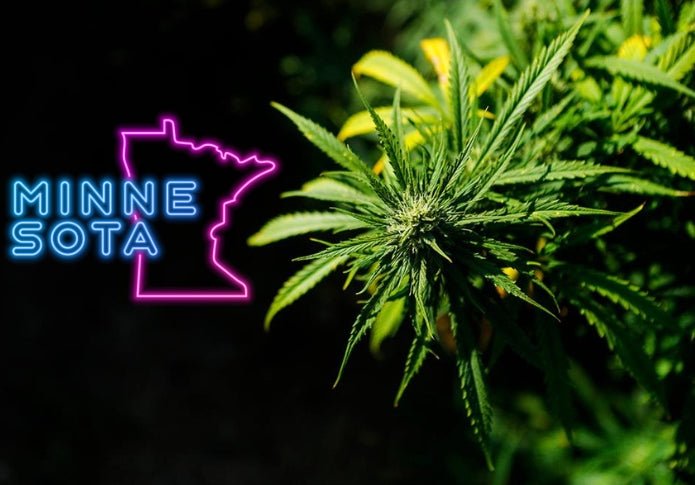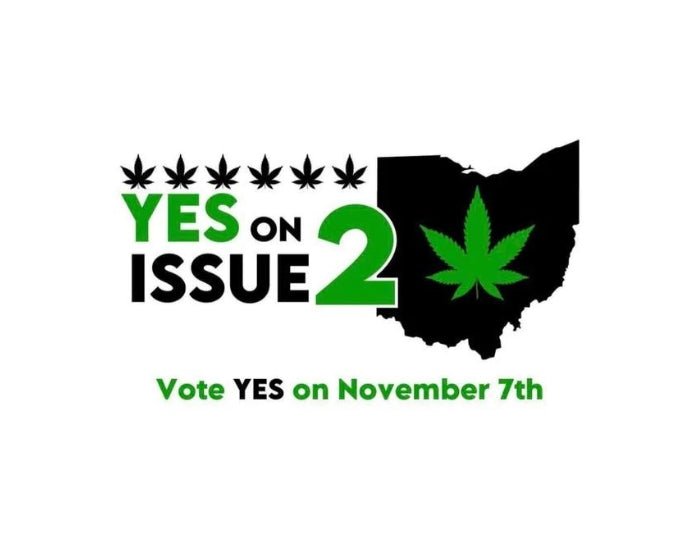Whether through his veto power or the stroke of his executive pen, Governor Gavin Newsom (D) made significant changes to California's marijuana market over the weekend.

California's chief executive spent this past weekend immersed in a vast array of cannabis-related legislation as he mulled over which measures to sign into law or veto. Presiding over the nation's largest state and the country's most lucrative and competitive marijuana market, Governor Gavin Newsom retains the somewhat unenviable task of guiding the, at times, unwieldy and unpredictable industry as it confronts numerous challenges including a still listless economy and the ever-present illicit black market.
While the governor is a steadfast and long-time supporter of the legal and regulated adult-use cannabis industry in his home state, his weekend actions sent mixed messages to market advocates and stakeholders. According to multiple media outlets, Newsom vetoed a bill to legalize marijuana cafes, allowing businesses to expand their current operations and providing consumers with new socializing opportunities.
However, with that same veto pen, he also blocked cannabis packaging legislation that industry operators contend would have burdened them with excessive restrictions. At the same time, he signed several other bills into law designed to make substantial adjustments to the state's cannabis statutes in areas such as licensing, tracking, testing and social equity.
The cannabis cafe bill, which the governor vetoed, would have empowered local governments to authorize marijuana consumption lounges to prepare and sell non-cannabis foods and soft drinks at their facilities. It would've also allowed "live musical or other performances on the premises of a retailer or microbusiness…in the area where the consumption of cannabis is allowed, and the sale of tickets for those performances."
In a message concerning his controversial veto decision, Newsom wrote that while he appreciates the intention behind the legislation to "provide cannabis retailers with increased business opportunities and an avenue to attract new customers," he is "concerned this bill could undermine California's long-standing smoke-free workplace protections."
He continued, "Protecting workers' health and safety is paramount. I encourage the author to address this concern in subsequent legislation."
The other legislation vetoed by the governor concerns a new definition for marijuana product packaging called "attractive to children." If Newsom had signed the measure into law, it would have explicitly prohibited this new type of packaging, including the use of images such as "cartoons, toys or robots," "any real or fictional humans," "any fictional animals or creatures" and "fruits or vegetables, except when used to accurately describe ingredients or flavors contained in a product."
Similar to his cannabis cafe veto message, Newsom said that while he appreciates lawmakers' intentions in passing the packaging legislation, he believes that its definition of "attractive to children" is "overly broad."
"By prohibiting entire categories of images, this bill would sweep in commonplace designs, and I am not convinced that these additional limits will meaningfully protect children beyond what is required under existing law," he said.
"By prohibiting entire categories of images, this bill would sweep in commonplace designs, and I am not convinced that these additional limits will meaningfully protect children beyond what is required under existing law."
- California Governor Gavin Newsom (D)
The governor's decision to veto the bill was cheered resoundingly by California Cannabis Industry Association President Pamela Epstein. "AB 1207 posed a significant threat to the industry with excessive restrictions, inadvertently favoring the illegal market and depleting critical tax revenues earmarked for youth deterrence programs," she said.
"AB 1207 posed a significant threat to the industry with excessive restrictions, inadvertently favoring the illegal market and depleting critical tax revenues earmarked for youth deterrence programs."
- Pamela Epstein, President of the California Cannabis Industry Association
However, the governor did not spend the entire weekend rejecting legislative measures passed by the State Assembly. Among the many items he did sign into law, one of the more impactful ones provides changes to tracking cannabis plants. Supporters of the measure say it will promote environmental sustainability by eliminating single-use plastic tags.
Celebrating the governor's decision to sign the measure into law, Senator Ben Allen (D), the bill's sponsor, wrote, "Beyond environmental and financial impacts for our local governments, plastic products have become a public health hazard such that we are finding microplastics in bloodstreams. We should act responsibly to curb the unnecessary use of plastics where possible. As the cannabis industry continues to develop in California, it is critical that we support sustainability as a pillar of its growth. SB 622 aims to do just that, and I thank Governor Newsom for signing this common-sense measure."
Tiffany Devitt, head of regulatory affairs for CannaCraft, also applauded the governor's action concerning the bill: "Over the past five years, the state has used between 200 and 250 million plant tags generating over 1 million pounds of plastic waste. The price tag on that waste: The state of California spends about $15 million per year buying these tags and providing them to cannabis farms. The biggest tragedy here is that those tags did nothing to prevent diversion, which was the stated intent."
"Over the past five years, the state has used between 200 and 250 million plant tags generating over 1 million pounds of plastic waste. The price tag on that waste: The state of California spends about $15 million per year buying these tags and providing them to cannabis farms. The biggest tragedy here is that those tags did nothing to prevent diversion, which was the stated intent."
- Tiffany Devitt, head of regulatory affairs for CannaCraft
Overall, the governor's rulings regarding the many cannabis-related measures that arrived at his desk this weekend were a mixed bag of good and bad news for the California cannabis industry. Denying the marijuana cafe initiative will have a negative economic impact on the future growth of the burgeoning hospitality end of the marketplace.
However, his veto of the packaging bill and signing of the new tracking legislation will ultimately have a much more positive effect on the industry than any potential negative regression caused by the cafe bill's refusal. It is a delicate balancing act for the governor to navigate for sure.
Managing a multi-billion-dollar industry that has to compete with a still robust and evasive illicit black market is no easy task, considering it is still technically illegal at the federal level. Choosing which laws to enact and which to reject is an unenviable job. However, considering all the complicated moving parts comprising the market's political, economic and social aspects, the governor is doing as good a job as expected.








































